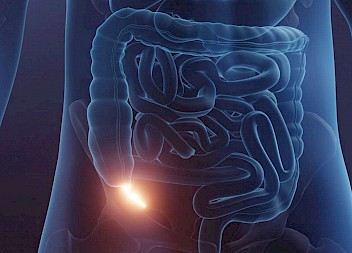A 44-year-old woman was awarded a £600,000 total damages for the delay in diagnosis of appendicitis in September 2014.
The hospital admitted liability but denied the extent of damage caused by the delays in treatment.
On 23 September 2014 the claimant attended the hospital emergency department feeling sick and complaining of right sided abdomen pain. Investigations were undertaken and a doctor noted gradual onset of pain over the previous 24 hours. Blood tests showed a raised C-reactive protein which can be one of the indicators for appendicitis. However, it was initially thought that the pain was probably coming from her ovary unlikely to be from the appendix. She was referred to a gynaecologist for an ultrasound scan and no abnormalities were seen on the scan. After this, she was advised that she had unexplained abdominal pain. So, on this attendance, appendicitis was ruled out and she was allowed home without further investigations.
It was only when she collapsed at work two days later that she was taken back to A&E. On review the surgical team noted the history of abdominal pain and considered she had a perforated appendix. Surgery called a laparoscopic appendectomy was undertaken on 26 September.
Unfortunately, after surgery, she had severe abdominal pain. There was leakage from a surgical drain left in the abdomen and fluid from the drain showed a growth of multi-resistant E.coli bacteria. This was probably accumulated as a result of the delayed diagnosis leading to the appendicitis bursting before surgery. A drug, Ertapenem, given on 29 September caused this lady to suffer anaphylactic shock and she had to have adrenalin and hydrocortisone to recover. She had to be admitted to intensive care but was discharged home four days later.
The claimant brought a claim against the Hospital Trust alleging that it was negligent in failing to ensure that she was re-assessed in the emergency department on 23 September 2014. Had she been assessed a laparoscopic appendectomy would have been undertaken on 24 September.
Liability was admitted but causation of injury was disputed in respect of recovery after discharge.
The Claimant had suffered faecal peritonitis, anaphylactic shock, IBS-D, increased risk of pelvic adhesions, facial telangiectasia, post-traumatic stress disorder and a mild depressive episode. Here medical experts have the opinion that irritable bowel syndrome would not have occurred but for the perforation and subsequent sepsis. As she had suffered persistent symptoms for more than four years, the symptoms should be seen as permanent. However, the Hospital Trust’s experts predicted a 60% future improvement in IBS symptoms with further treatment.
The Claimant’s medical evidence was that her skin condition, called facial telangiectasia, was caused by an adverse reaction to ertapenem. But for the index incident, the skin condition may have occurred later, by up to 20 years, and slowly progressed with increasing age, but would have been mild and not noticeable at conversational distance. In respect of PTSD, her expert recommended CBT and EMDR therapies. However, she was likely to have some on-going long-term PTSD symptoms which should be considered permanent.
She attempted to return to her work as a Director of a finance Company but was unable to do so. Approximately £510,000 of the award was in respect of both past and future loss of earnings as well as future pension, £8,000 for future therapy costs, £2,000 for past care and £80,000 for her pain and suffering.






